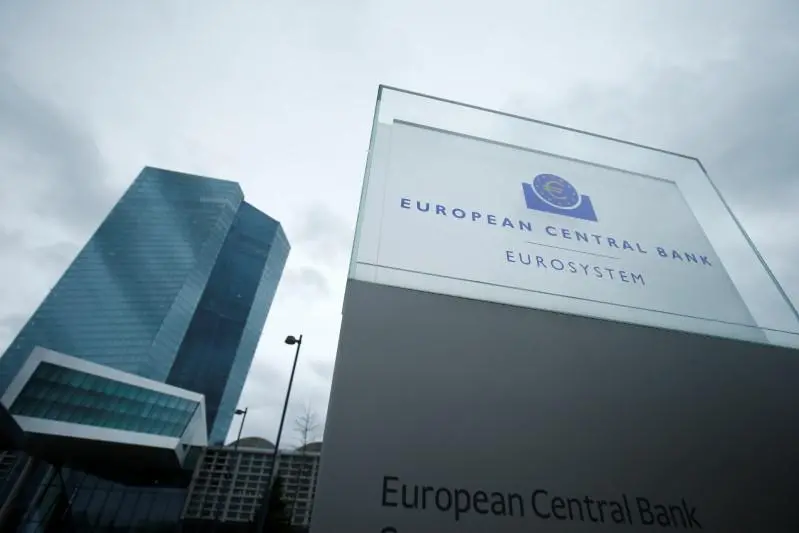PHOTO
European Central Bank officials are still banging the inflation drum and suggesting interest rates must keep rising, but there's enough nervousness about banks or a possible policy misstep to mean they face an uphill battle convincing markets.
Having firmly scaled-back rate expectations amid last month's market turmoil, investors no longer expect borrowing costs to stay higher for longer and are cautious about pricing in a deposit rate above 4%.
Ahead of the ECB's May 4 meeting, pricing for where rates will peak remains well below levels of just over 4% seen in early March, before the collapse of two regional U.S. lenders and the forced takeover of Credit Suisse triggered a rush into safe-haven assets.
"What happened (with the market turmoil) is a reminder that hiking cycles usually get stopped out abruptly because of unforeseen fragilities," said BofA strategist Erjon Satko.
As well as fretting about other potential skeletons in the banking sector's closet, investors are worried about what effect the quickest rate-hiking cycle since the adoption of the euro will have on the 20-country currency bloc's economy.
A BoFA survey on Monday showed fragile financial markets and sticky inflation are top concerns among investors, who have lifted bond allocations to the highest since March 2009.
The November 2023 ECB euro short-term rate (ESTR) forward rose to 3.65% on Wednesday, implying expectations for a deposit rate of around 3.75%.
BofA said late last week it had closed its short September 2023 Euribor position, arguing it would be difficult for the market to price in a terminal rate above 3.75% without more confidence that the ECB will hike by another 50 bps in May.
Citi meanwhile argued that the June ESTR or money market contract was less appealing from a hedging standpoint while markets were pricing a peak of 3.75%.
Earlier this year, it took a month of hawkish rhetoric from ECB policymakers and robust February inflation data to convince markets the central bank was ready to raise rates above 4%.
But less than two weeks of banking stress was enough for traders to lower expectations for rates to peak at 3%, back to where they stood in mid-December.
Analysts read into the ECB's March statement the chance it might alter the course of the policy if it had a solid reason to believe that financial stress might affect the impact of ECB decisions on money markets.
A surge in trading volumes of bond futures as investors reassessed the policy outlook reflects the level of conviction about rates peaking lower, analysts said.
In the two weeks from March 10, volumes for German Bund and Italian BTP futures were close to their highest since early 2020, JPMorgan analysts said, "suggesting a widespread adjustment of positioning at a pivotal point on monetary policy expectations".
But Bund futures volumes declined after March 15 as markets once more revised their rate expectations upwards.
Markets are also now pricing in cuts in the first half of 2024, a sign investors fear the ECB might raise rates too much, too fast and will need to reduce them quickly.
Analysts estimate it takes around six months for any changes in monetary policy to have an impact on inflation and growth.
In early March, most traders were positioned for a higher-for-longer rates scenario.
"We don't think rate cuts are around the corner," said Colin Graham, head of multi-asset strategies at Robeco.
"The only risk, which is outside our central investment scenario, is that central banks have done too much tightening already, with disproportional economic damages that will become evident soon," he added.
Commerzbank flagged a recent drop in volatility - the rate at which an asset price increases or decreases - as a further indication that markets suspect the hiking cycle is almost over, adding that volatility is correlated with the distance from the actual deposit rate to the expected terminal rate.
This means that the smaller the gap between the current benchmark rate and the expected rate, the lower the volatility, and vice versa.
(Reporting by Stefano Rebaudo, Editing by Amanda Cooper, Dhara Ranasinghe and Catherine Evans) ;))





















